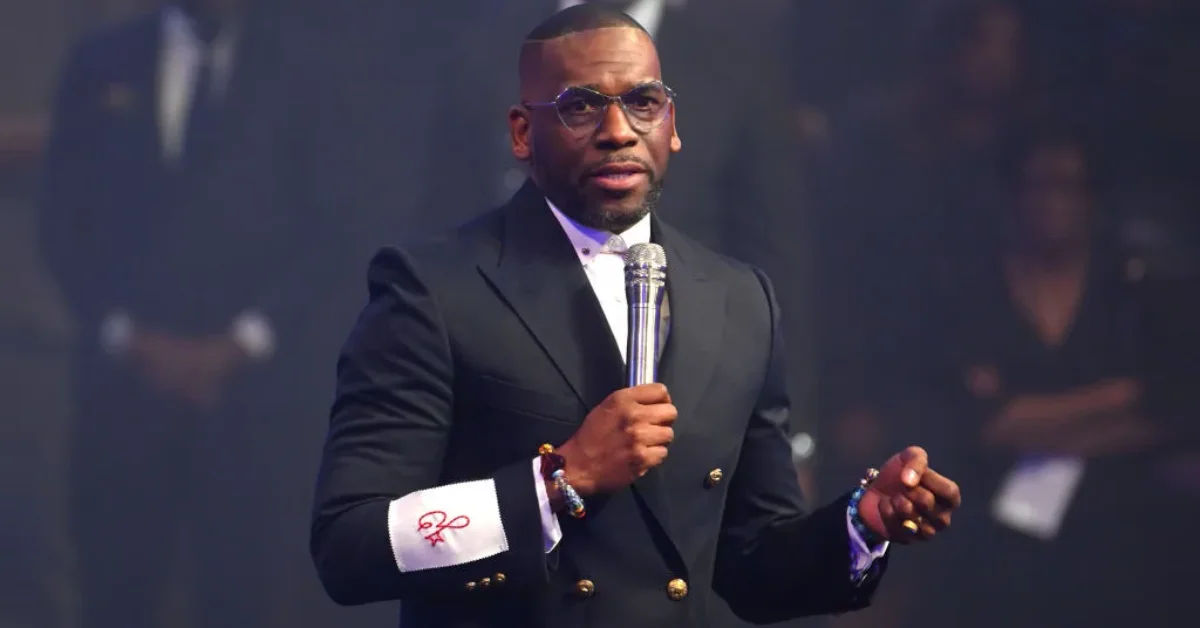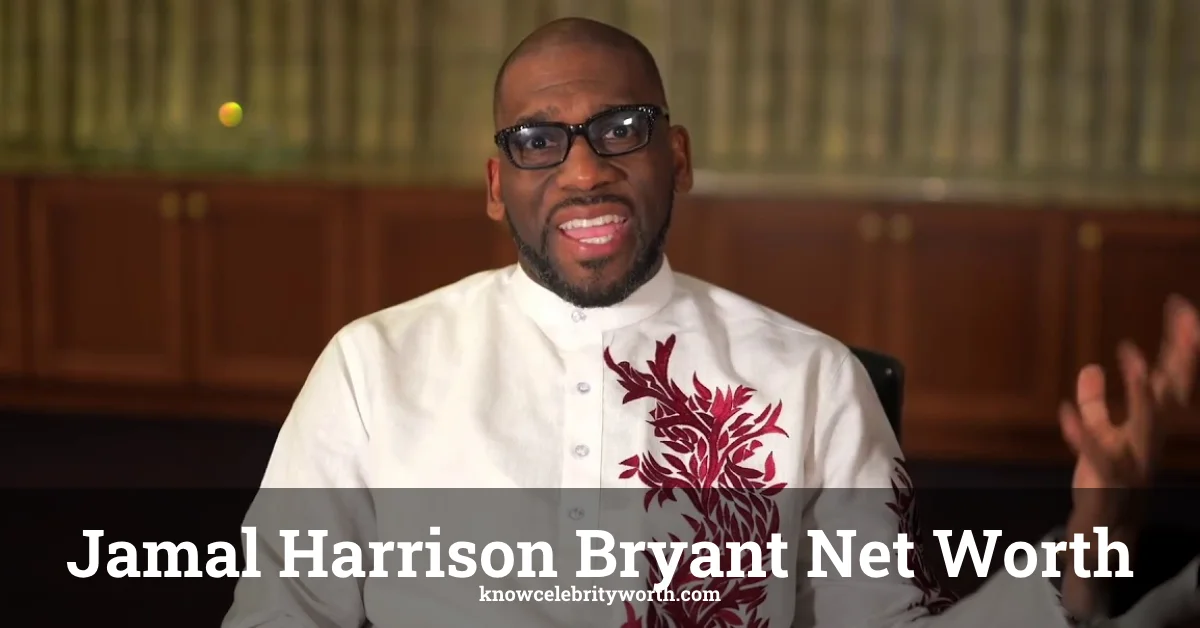Searching for Jamal Harrison Bryant’s net worth leads to lots of mixed numbers and guessing. As a prominent pastor, author, and activist, Bryant has built his reputation through powerful sermons and outspoken advocacy. But just how much wealth has he accumulated along the way?
The truth about Bryant’s finances is more complex than a simple number. Some say he’s worth about $500,000. Others put him closer to $3 million. This wide range leaves many wondering what’s behind these numbers and which estimate comes closest to reality.
In this deep dive, we’ll explore the various aspects of Jamal Harrison Bryant’s financial status, from his church leadership roles to his other income streams. We’ll look at how his career developed from his Boston upbringing to his current position at New Birth Missionary Baptist Church, and why his financial standing attracts so much public interest.
Jamal Harrison Bryant Net Worth Pennbook
The question of Jamal Bryant’s actual net worth presents a puzzling picture. When you search for information about his wealth, you’ll find estimates ranging from a modest $500,000 to an impressive $3 million. What explains this huge gap in the numbers?
Several factors contribute to these varying estimates. First, as a church leader, much of Bryant’s compensation isn’t publicly disclosed in the same way as corporate executives’ salaries. Churches aren’t required to share money details like public companies, so people guess more.
“Pennbook” is just one of many sites people check for celebrity net worth. However, these platforms don’t always have access to verified financial data, especially for religious leaders whose finances aren’t always transparent.
Where does His Money Come From?
Bryant has several income streams, but pastoring is the biggest. As the senior pastor of New Birth Missionary Baptist Church in Georgia, he receives a salary that reflects his position leading a congregation with thousands of members. Before New Birth, he founded and led Empowerment Temple AME Church in Baltimore, which grew from just a handful of members to over 10,000 under his guidance.
Church leadership provides more than just a basic salary. Many successful pastors receive housing allowances, travel funds, speaking fees, and other perks that add to their total pay and perks. For leaders of large churches like Bryant, these additional benefits can be substantial.
Beyond the pulpit, Jamal Harrison Bryant has built his brand through books and media. He’s authored several books on faith, relationships, and personal growth that generate royalty income. Titles like “World War Me” and “5 Steps to Better Relationships” have connected with readers seeking spiritual guidance.
Bryant’s speaking engagements outside his church create another revenue stream. As a dynamic orator known for his powerful delivery style, he commands fees for appearances at conferences, seminars, and special events across the country. These speaking opportunities not only spread his message but also contribute to his overall income.
Media appearances have further expanded Bryant’s reach and earning potential. His sermons air on TV and online, reaching viewers everywhere. These broadcasts can generate advertising revenue and increase his visibility, which in turn drives book sales and speaking opportunities.
His 2025 boycotts against unfair systems have made him known across the country. While activism itself may not be directly profitable, the increased visibility often translates to greater opportunities in speaking engagements and media appearances.
Career as Pastor-Politician
To understand Jamal Harrison Bryant’s financial standing, you need to look at the path that brought him to prominence. His journey from humble beginnings to national religious figure and activist sheds light on how he built both his platform and his wealth.

1. Early Life
Bryant’s story begins in Boston, Massachusetts, where his early exposure to faith and community service shaped his future direction. Born into a religious family, he witnessed firsthand the power of the church to impact communities. That early faith led him to study theology.
His academic journey led him to Duke Divinity School, where he received formal theological training. This prestigious education provided him with the credentials and knowledge needed to advance in church leadership. Beyond the classroom, Duke connected Bryant with networks and mentors who would help shape his career trajectory.
After completing his education, Bryant quickly distinguished himself as a charismatic speaker with the ability to connect with younger audiences. This gift for communication would become his signature strength and a key factor in his rapid rise within religious circles.
2. Church Leadership
In the early 2000s, he founded Empowerment Temple AME Church in Baltimore, growing it from a handful of members to over 10,000 in under a decade. What started as a small gathering grew explosively under his leadership. His dynamic preaching style and focus on contemporary issues helped attract younger churchgoers who hadn’t previously felt connected to traditional services.
Under Bryant’s leadership, Empowerment Temple expanded from just a handful of members to over 10,000, making it one of Baltimore’s fastest-growing churches. This rapid growth demonstrated Bryant’s ability to build both a congregation and an organization—skills that would serve him well throughout his career.
After his successful tenure at Empowerment Temple, Bryant took on the challenge of leading New Birth Missionary Baptist Church in Georgia. This transition marked a significant step in his career, as New Birth was already an established megachurch with a national reputation. Taking over from its previous well-known leader required Bryant to navigate complex expectations while putting his stamp on the church’s direction.
At New Birth, Bryant continued to develop his distinctive approach to ministry. He combined traditional gospel messages with talks on social justice issues, creating services that addressed both spiritual needs and contemporary challenges. This approach resonated with many congregants seeking a faith that engaged with real-world problems.
3. Activism
Bryant’s work extends beyond church walls into political and social activism. Throughout his career, he has used his platform to address issues affecting Black communities, from voter rights to economic inequality. These efforts have sometimes generated controversy but have also strengthened his connection with those seeking faith leaders who take stands on social issues.
In 2025, Bryant organized high-profile boycott campaigns targeting corporations and institutions he identified as contributing to systemic inequality. These campaigns attracted national attention and positioned Bryant as not just a pastor but a political figure with the ability to get people involved around causes.
His activism work represents an interesting dimension of his career and potentially his finances. While direct income from activism is limited, the visibility it earns can create opportunities in other areas. Moreover, Bryant’s willingness to take controversial positions demonstrates his prioritization of principles over potential financial benefits that might come from a less politically engaged approach.
Why the “Pennbook” Speculation Matters
The ongoing interest in Jamal Harrison Bryant’s net worth reflects broader questions about religious leadership, financial transparency, and the intersection of faith and money. The “Pennbook” searches and similar inquiries come from a place of genuine curiosity about how religious leaders manage wealth while preaching about values and priorities.
Why People Watch His Money?
Religious leaders face unique financial scrutiny. Donors want to know their gifts go to church work, not big personal splurges. That worry grew when some pastors showed off private jets, fancy homes, and designer clothes.
For Bryant specifically, his dual role as pastor and activist creates additional layers of scrutiny. Critics sometimes question whether his activism aligns with his financial practices, suggesting that true advocates for economic justice should demonstrate modest living themselves. Supporters counter that financial success doesn’t disqualify someone from advocating for systemic change.
The “Pennbook” phenomenon—people searching online for information about Bryant’s wealth—speaks to this tension. In the absence of transparent financial disclosures, people turn to whatever sources they can find, even if those sources lack verification or context.
This scrutiny isn’t limited to Bryant alone. Many religious leaders face similar questions, especially those with large platforms and multiple income streams. The challenge lies in balancing personal financial well-being with the values and principles they preach.
For Bryant and other prominent pastors, managing these narratives presents a significant challenge. Complete financial transparency might satisfy curiosity but could also invite misinterpretation or judgment. Limited disclosure, however, leaves room for speculation and potentially damaging rumors.
The “Pennbook” searches reflect this information vacuum. Without clear, verified data about Bryant’s finances, people rely on whatever information they can find online, regardless of its accuracy. This dynamic creates a cycle where speculation drives more searches, which in turn generate more speculation-based content.
His books, speaking engagements, and media appearances have created additional revenue streams typical of successful pastors. These diverse income sources help explain why estimates of his wealth vary so widely—different analyses might include or exclude certain assets or income types.
From a broader perspective, Bryant represents a modern model of religious leadership that balances spiritual guidance with social engagement and professional development. This model inevitably includes financial considerations, as leaders support themselves while building platforms for their message.
Conclusion
The fixation on Jamal Harrison Bryant’s net worth reflects our culture’s broader tendency to quantify success in monetary terms. While financial details certainly provide one measure of a person’s career trajectory, they tell only part of the story.
Bryant’s influence extends beyond whatever wealth he has accumulated. His ability to grow churches from small congregations to thousands of members demonstrates leadership skills and a connection with communities. His willingness to address controversial social issues shows courage, regardless of one’s agreement with his specific positions.
For those following Bryant’s career or searching for “Jamal Harrison Bryant net worth Pennbook,” the more complete picture includes understanding the complex role of modern religious leaders who balance spiritual guidance with practical organizational leadership and public advocacy.
This broader influence may ultimately prove more significant than whatever financial resources he has accumulated along the way. For many who follow his work, the message matters more than the messenger’s bank account.
